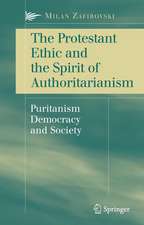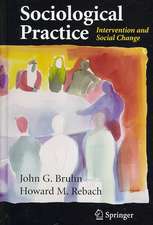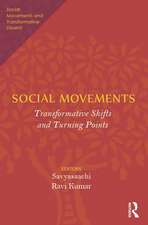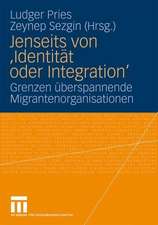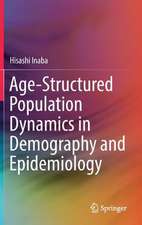Refugee Protection and Civil Society in Europe
Editat de Margit Feischmidt, Ludger Pries, Celine Cantaten Limba Engleză Hardback – 12 oct 2018
Through the combined analysis of macro-level state and European policies, meso-level organization's activities and micro-level individual behaviour, Refugee Protection and Civil Society in Europe presents a comprehensive exploration of the refugee regime in motion, and will be of interest to scholars and students researching migration, social movements, European institutions and social work.
| Toate formatele și edițiile | Preț | Express |
|---|---|---|
| Paperback (1) | 586.88 lei 43-57 zile | |
| Springer International Publishing – 20 dec 2018 | 586.88 lei 43-57 zile | |
| Hardback (1) | 740.91 lei 43-57 zile | |
| Springer International Publishing – 12 oct 2018 | 740.91 lei 43-57 zile |
Preț: 740.91 lei
Preț vechi: 903.56 lei
-18% Nou
Puncte Express: 1111
Preț estimativ în valută:
141.77€ • 148.42$ • 117.31£
141.77€ • 148.42$ • 117.31£
Carte tipărită la comandă
Livrare economică 07-21 aprilie
Preluare comenzi: 021 569.72.76
Specificații
ISBN-13: 9783319927404
ISBN-10: 331992740X
Pagini: 395
Ilustrații: XX, 399 p. 1 illus. in color.
Dimensiuni: 148 x 210 mm
Greutate: 0.83 kg
Ediția:1st ed. 2019
Editura: Springer International Publishing
Colecția Palgrave Macmillan
Locul publicării:Cham, Switzerland
ISBN-10: 331992740X
Pagini: 395
Ilustrații: XX, 399 p. 1 illus. in color.
Dimensiuni: 148 x 210 mm
Greutate: 0.83 kg
Ediția:1st ed. 2019
Editura: Springer International Publishing
Colecția Palgrave Macmillan
Locul publicării:Cham, Switzerland
Cuprins
Chapter 1: Civil Society and Volunteering in the So-Called Refugee Crisis of 2015 – Ambiguities and Structural Tensions; Ludger Pries .- Chapter 2: Networks of Refugee and Asylum Related Organizations in the Mediterranean Area of the European Union; Juliana Witkowski, Ludger Pries, Anna Mratschkowski.- Chapter 3: Politics of Care and Compassion. Civic Help for Refugees and Its Political Implications in Hungary – A Mixed-Methods Approach; Margit Feischmidt, lldikó Zakariás.- Chapter 4: Subversive Humanitarianism and Its Challenges: Notes on the Political Ambiguities of Civil Refugee Support; Robin Vandevoordt, Gert Verschraegen.- Chapter 5. Opportunistic Humanitarianism and Securitization Discomfort Along the Balkan Corridor: The Croatian Experience; Drago Župarić-Iljić, Marko Valenta.- Chapter 6. Becoming, Doing and Letting Go: (Extra)Ordinary Citizens’ Engagement with Resettled Syrian Refugee Families in Rural France; Claire Schiff, Alexandra Clavé-Mercier.- Chapter 7. Gender and Intimate Solidarity in Refugee-Sponsorships of Unaccompanied Young Men; Paul Scheibelhofer.- Chapter 8. The Welcomers: How Volunteers Frame Their Commitment for Refugees; Serhat Karakayali.- Chapter 9. Volunteer, Citizen, Human: Volunteer Work Between Cosmopolitan Ideal and Institutional Routine; Theresia Turinsky, Magdalena Nowicka. - Chapter 10. 'Something More': The Citizenship Performativity of Religiously Founded Refugee Projects; Trygve Wyller.- Chapter 11. ‘Only Volunteers’?: Personal Motivations and Political Ambiguities Within the Refugees Welcome to Malmö Civil Initiative; Maja Povrzanović Frykman, Fanny Mäkelä.- Chapter 12. Contestations of the Swedish Deportation Regime: Civil Mobilisation for and with Afghan Youth; Ildikó Asztalos Morell.- Chapter 13. Refugee Social Work Positioned Between Transnationalization, State Services and Volunteering. A Review from the German Context; Claudia Olivier-Mensah.- Chapter 14. Conclusion: Civil Involvement in Refugee Protection: Reconfiguring Humanitarianism and Solidarity in Europe; Celine Cantat & Margit Feischmidt.
Recenzii
“The [book] examined here can serve as a source for understanding the various roles played by civil societies and religion in a migration crisis.” (Insight Turkey, Vol. 23 (1), 2021)
Notă biografică
Margit Feischmidt is Senior Researcher at the Hungarian Academy of Sciences Centre for Social Sciences, Institute for Minority Studies and Associate Professor at the Department for Communication and Media Studies, University of Pécs, Hungary.
Ludger Pries is Professor at the Department of Social Science, Ruhr-University Bochum, Germany.
Celine Cantat is Research Fellow at the Center for Policy Studies, Central European University, Hungary.
Ludger Pries is Professor at the Department of Social Science, Ruhr-University Bochum, Germany.
Celine Cantat is Research Fellow at the Center for Policy Studies, Central European University, Hungary.
Textul de pe ultima copertă
This volume analyses civil society as an important factor in the European refugee regime. Based on empirical research, the chapters explore different aspects, structures and forms of civil society engagement during and after 2015. Various institutional, collective and individual activities are examined in order to better understand the related processes of refugees’ movements, reception and integration. Several chapters also explore the historical development of the relationship between a range of actors involved in solidarity movements and care relationships with refugees across different member states.
Through the combined analysis of macro-level state and European policies, meso-level organization's activities and micro-level individual behaviour, Refugee Protection and Civil Society in Europe presents a comprehensive exploration of the refugee regime in motion, and will be of interest to scholars and students researching migration, social movements, European institutions and social work.
Caracteristici
Looks at phenomena related to refugee protection which have all become major terrains of civic engagement in Europe Analyses individual, collective and institutional forms of refugee protection, particularly practices of humanitarianism and solidarity towards forced migrants Assesses the institutions and structures developed to coordinate volunteers’ activities which integrate public, corporate and civic actors

